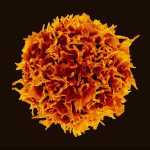
Early life abuse may be linked to greater risk of adult premature death

New research suggests early life abuse may be linked to a greater risk of adult premature death highlighting the need for trauma care
Physical and sexual abuse in childhood and adolescence could be associated with a greater risk of adult premature death (before age 70), the research found.
This study extends and refines the existing evidence in this area, and highlights the importance of providing trauma-informed care for those who have experienced child abuse, say the researchers.
Early life abuse is a global public health issue because it substantially contributes to child death and a range of long-term consequences during adulthood.
However, the association of childhood or adolescent abuse with total and cause-specific premature death during adulthood remains unclear.
To explore this further, researchers examined data from 67,726 US female nurses taking part in the Nurses’ Health Study II, an ongoing monitoring study that began in 1989.
Nurses were aged 37-54 years when they completed a violence victimisation questionnaire in 2001 to record experiences of physical and sexual abuse in childhood (before age 12 years) and adolescence (between ages 12 and 17 years).
The researchers then calculated summary measures of abuse and linked these to medical records, autopsy reports, or death certificates to determine age and cause of death.
They also considered other relevant factors, including ethnicity, parental education and profession, physical activity, diet, smoking status, alcohol intake, prescription drug use, and depression.
During 18 years of monitoring, 2,410 premature deaths were identified.
Nurses who experienced severe physical abuse or forced sexual activity in childhood and adolescence had a higher premature death rate than nurses without such abuse (3.15 v 1.83 and 4.00 v 1.90 per 1,000 person-years, respectively).
After adjusting for age, personal characteristics, and socioeconomic status in early life, relative premature death rates were 53% and 80% higher among nurses who experienced severe physical abuse or forced sexual activity in childhood and adolescence compared with those who did not.
- Image and appearance concerns majority of adolescents and teens
- Young people suffer sharp decline in wellbeing at secondary school
- Poverty is the fourth greatest cause of deaths in the US
Severe physical abuse
Further analyses indicated that severe physical abuse was associated with around a threefold greater risk of death due to external injury, poisoning and suicide and a 2.4-fold greater risk for digestive diseases.
And serious sexual abuse was associated with a 2.5-fold greater risk of death due to cardiovascular disease, over a threefold greater risk from external injury, poisoning and respiratory disease, and over a fourfold greater risk from suicide and digestive diseases.
The association of sexual abuse with premature death was stronger among women who smoked or had higher levels of anxiety during adulthood.
The researchers suggest that early life abuse may trigger biological changes, including immune and inflammatory function and brain development, and heighten vulnerability to later mental health problems and unhealthy lifestyle patterns.
This is an observational study, so can’t establish cause, and the researchers acknowledge that the data relied on personal recall of early life abuse, which may have affected accuracy.
And the study included primarily non-Hispanic white female nurses, so results may not apply to the general female population and other more diverse populations.
Nevertheless, this was a large study with 18 years of monitoring, excellent response rates, detailed information on causes of death and abuse history, and adjustment for a range of other potentially influential factors, suggesting that the results are robust.
Early life abuse
As such, they conclude: “Women reporting early life physical abuse and forced sexual activity might continue to be vulnerable to premature mortality, highlighting the importance of providing trauma-informed care for those who have experienced child abuse.”
Australian researchers in a linked editorial said: “It is now clear that health outcomes for people exposed to serious child abuse or neglect are poor, and for those subject to the highest-level abuse truly concerning.”
The Australian researchers called for a proportionate clinical response and said clinicians and health and community services: “require the capacity, skill, and funding to deliver the intensive and responsive service models needed to address the trauma underlying many, apparently intractable chronic conditions.”
They conclude that long-term commitment to a proportionate response: “could reduce the disturbing health consequences observed in victims of child abuse and neglect, and prevent the transmission of abuse to another generation.”
The research is published in The BMJ.
Image: Credit: whoismargot (CC0).














